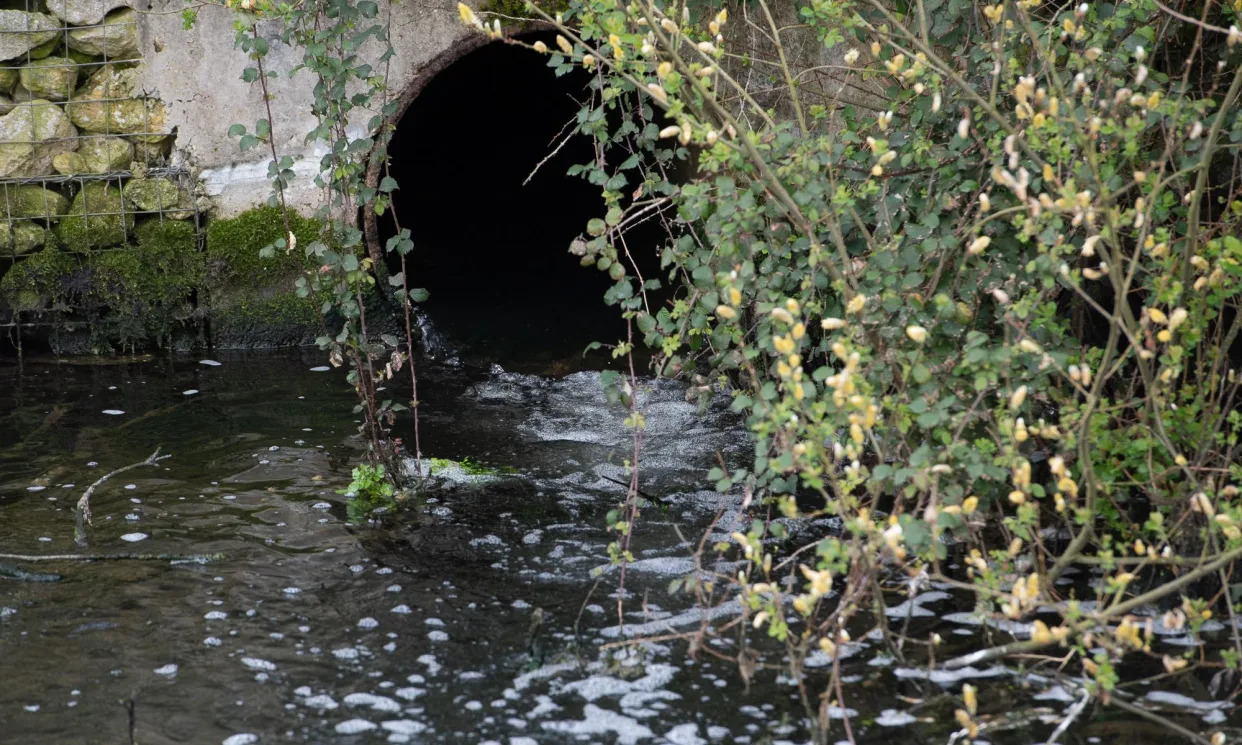Sandra Laville
Wed 9 October 2024

Outflow at a sewage treatment works in Berkshire. Arrojo-Agudo said problems with England’s privatised model were compounded by a lack of transparency.Photograph: Maureen McLean/Rex/Shutterstock
The privatised English water system has been singled out for criticism by the UN special rapporteur on the human right to clean water.
Prof Pedro Arrojo-Agudo said water systems should be managed as a publicly owned service, rather than run by private companies set up to benefit shareholders.
In a report Arrojo-Agudo singled out for criticism the privatised English water system and said the regulator Ofwat had shown a complacent attitude towards the financial systems of private water firms.
Matthew Topham of We Own It, a campaign group demanding water be returned to public ownership, said Arrojo-Agudo’s report was a brutal rebuke to the UK government’s strategy on the water industry. He spoke a day after Ofwat ordered English water companies to return £158m to customers after they oversaw the worst year for pollution since 2020.
The environment secretary, Steve Reed, has rejected calls to take the industry back into public control. He suggested it would cost tens of billions of pounds, but used a report by the Social Market Foundation that was paid for by water companies to back up his case. In what critics are calling the reprivatisation of water, Reed is seeking new private investment and has held roundtables with financial investors from across the world.
In his report Arrojo-Agudo said the privatised model in England was compounded by a lack of transparency and a lack of public participation. He said private companies were able to preserve information about their corporate strategy and local institutions were unable to control and regulate operators effectively because of the power imbalance, as well as a lack of political will on the part of those in power, who were often co-opted or captured by the operators.
Arrojo-Agudo said Ofwat was a costly regulatory institution that was not transparent. “The lack of transparency and public participation, and its complacency towards the financial strategies of private companies to benefit their shareholders at the detriment of the service received by the public, call into question its effectiveness,” he said.
Arrojo-Agudo said water companies should be non-profit with public-public partnerships, public investment and new participatory management models to involve civil society groups. England’s privatised system was picked out as anomaly; he said more than 90% of the world’s cities ran water in public ownership and increasingly members of the public were being given a voice on the company boards.
In Paris, he said, water was 100% municipally owned. “The French capital has demonstrated the transformative power of public ownership, prioritising human rights, reinvesting profits into the system, ensuring transparent governance, reducing tariffs and increasing its self-financing capacity,” said Arrojo-Agudo.
The customer satisfaction rate of the publicly owned Eau de Paris ranged from 90-96%.
Arrojo-Agudo said water and sanitation services were natural monopolies and market competition was not possible, whether management was privatised or not.
The Department for Environment, Food and Rural Affairs has been contacted for comment.
No comments:
Post a Comment